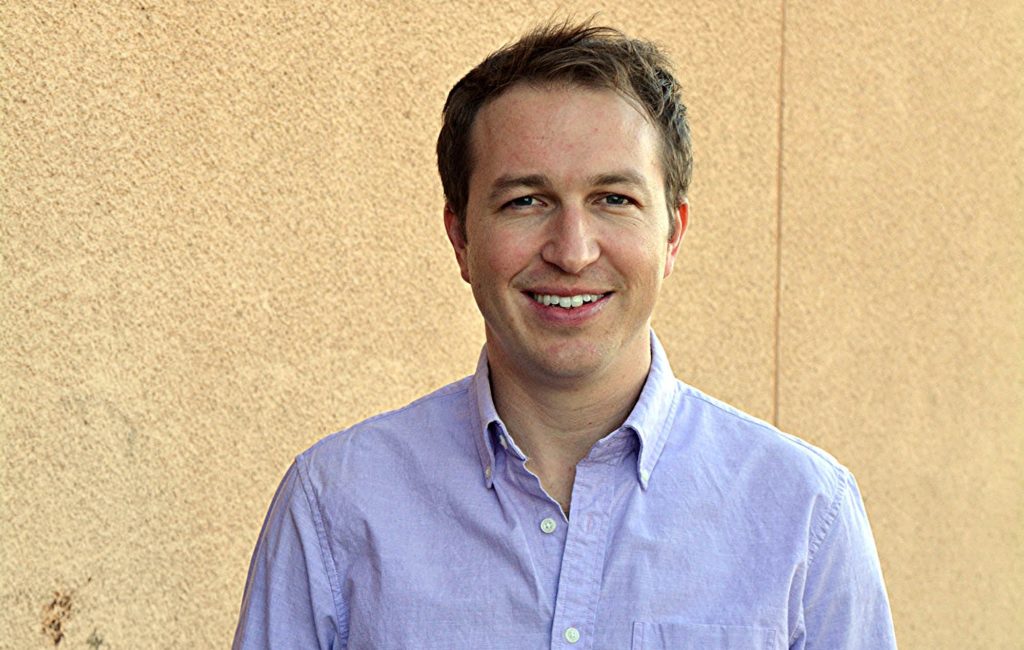Learning Curves
Parents’ Complaint: Nick Melvoin’s Lips Weren’t Sealed
Did a Los Angeles school board member leak confidential information to charter school lobbyists?

An ethics heat advisory in effect for Los Angeles Unified school board member Nick Melvoin got considerably hotter last week after a group of “concerned” district moms and public school supporters signed letters requesting formal investigations into alleged misbehavior by the pro-charter board rep. The letters were appended with 500 signatures from the group’s online petition, said parent activist Emiliana Dore, one of the five parents who signed the letters. According to Dore the informal group, which had met on social media boards like Public School Families and Parents Supporting Teachers, filed complaints with the L.A. city attorney’s office, the LAUSD inspector general and the State Bar of California. Their accusations are based on California Charter Schools Association (CCSA) meeting memos obtained under the state’s Public Records Act and published in July by the independent online muckraker site Michael Kohlhaas dot org. The charge? That at a private, February 20, 2018 meeting between Melvoin (a non-practicing attorney and CalBar member), local CCSA political operatives and L.A. charter school operators, Melvoin leaked confidential district legal strategy that proved beneficial to CCSA.
“Learning Curves” is a weekly roundup of news items, profiles and dish about the intersection of education and inequality. Send tips, feedback and announcements of upcoming events to braden@capitalandmain.com, @BillRaden.
At the time, the charter group was suing the district to make it easier for charters to shop, seize and co-locate on LAUSD campuses. (Charter schools won the right to occupy district facilities under California’s Proposition 39.) “This isn’t about attacking charters,” Dore insisted to Learning Curves. “I think they have a place in the system. It just seemed to us that an elected official who’s supposed to be representing all of LAUSD shouldn’t [be] sharing confidential information he got as a board member.” Neither Melvoin nor his office responded to a request for comment on this story.
The parents had already been pressing the board to investigate Melvoin over a February 21 CCSA-penned draft summary of Melvoin’s progress in delivering two board resolutions. Together these would legislate for CCSA what its lawsuit ultimately failed to litigate: “a complete [online] inventory of all LAUSD school facilities,” and, according to the meeting memo, what the charter sector hoped would be a mechanism to close down struggling schools — both public and charter — thereby potentially making available their vacated campuses. The latter plan is Melvoin’s vaunted School Performance Framework (SPF), a Yelp-like, one-to-five scale online schools ranking metric that was touted by the LAUSD board’s former pro-charter voting majority as a way to give parents and educators a simple and accessible measure of campus performance.
But as this email makes clear, CCSA lobbyist Jason Rudolph saw the SPF as “another pathway for [charter] access to facilities” occupied by public schools that posted subpar SPF numbers. SPF will next get a hearing on October 8, when the board’s Curriculum and Instruction Committee considers a Jackie Goldberg-authored resolution to pull its plug. Dore and the moms are demanding swift board action on what their online petition asserts is at the very least a violation of Melvoin’s “oath to represent the interests of all of the students in his district (LAUSD District 4)‚ not just the students attending charter schools.”
Score this week’s signing into law of state Senate Bill 206 as another missed opportunity for California to reaffirm the democratizing raison d’être of public higher ed still enshrined by Article 9 of the state constitution. Instead, beginning January 1, 2023, college athletes at the state’s 24 public and private Division I schools will for the first time be allowed to cash in on their names and likenesses for product-endorsement deals, a privilege their over-compensated coaches have been widely exercising since the late 1990s.
But for a bill sold as a civil rights cure for labor-exploited college jocks, and that also promised to “help lift collegiate athletes out of poverty,” a more likely scenario for the Fair Pay to Play Act will be nudging California public universities even deeper down the rabbit hole of privatization. That’s because the new law doubles down on magical market thinking that originally saw commercializing intercollegiate sports (and chasing government/private-sector science research) as cheaper than maintaining the state investment required for a first-rate, debt-free education for all.
Which is not to say the new law won’t also prove a boon for the relatively few winners expected to reap payouts — namely, the predominantly male stars of high-revenue sports, such as Pac 12 men’s basketball and football. Expected losers? Women athletes and just about everybody else on Cal campuses still forced to take on multiple part-time jobs and crippling student debt to bridge the gap left by decades of rising living costs and plunging taxpayer support.
Copyright Capital & Main

-

 Column - State of InequalityJanuary 22, 2026
Column - State of InequalityJanuary 22, 2026On Eve of Strike, Kaiser Nurses Sound Alarm on Patient Care
-

 The SlickJanuary 20, 2026
The SlickJanuary 20, 2026The Rio Grande Was Once an Inviting River. It’s Now a Militarized Border.
-

 Latest NewsJanuary 21, 2026
Latest NewsJanuary 21, 2026Honduran Grandfather Who Died in ICE Custody Told Family He’d Felt Ill For Weeks
-

 The SlickJanuary 19, 2026
The SlickJanuary 19, 2026Seven Years on, New Mexico Still Hasn’t Codified Governor’s Climate Goals
-

 Latest NewsJanuary 22, 2026
Latest NewsJanuary 22, 2026‘A Fraudulent Scheme’: New Mexico Sues Texas Oil Companies for Walking Away From Their Leaking Wells
-

 The SlickJanuary 23, 2026
The SlickJanuary 23, 2026Yes, the Energy Transition Is Coming. But ‘Probably Not’ in Our Lifetime.
-

 The SlickJanuary 27, 2026
The SlickJanuary 27, 2026The One Big Beautiful Prediction: The Energy Transition Is Still Alive
-

 Column - State of InequalityJanuary 29, 2026
Column - State of InequalityJanuary 29, 2026Are California’s Billionaires Crying Wolf?

